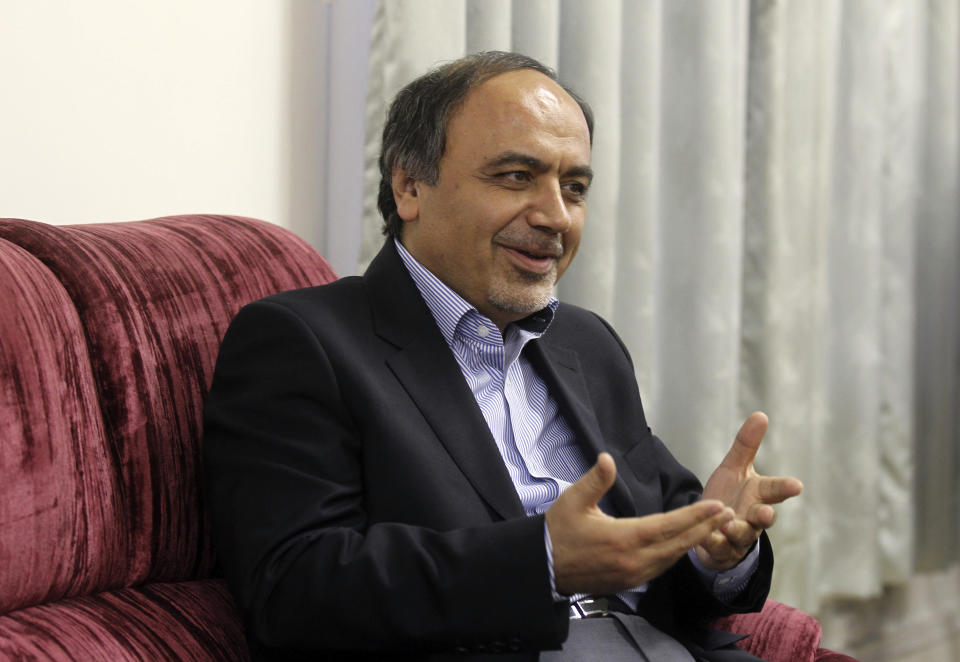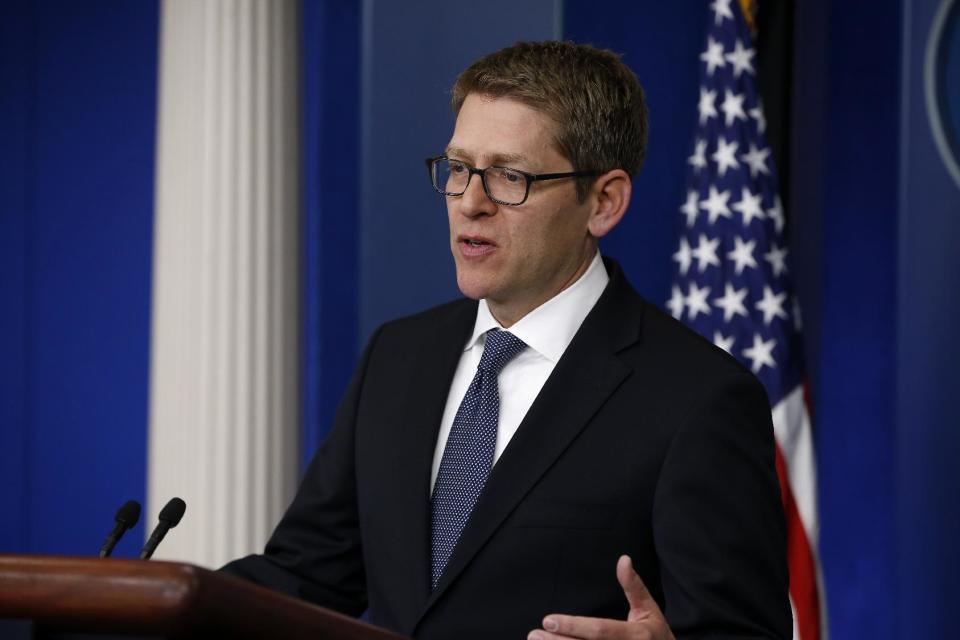Iran rejects naming new UN envoy after US refusal
TEHRAN, Iran (AP) — Iran rejected naming a new diplomat Saturday to represent it at the United Nations, with one lawmaker urging the Islamic Republic to stand up to "bullying" from the U.S., which has rejected granting its pick a visa.
The standoff over Hamid Aboutalebi, a member of the group responsible for the 1979 takeover of the U.S. Embassy in Tehran, comes as world powers negotiate with Iran over its contested nuclear program. It also threatens to stir fresh animosity between countries that recently have seen their relations thaw.
The Obama administration said Friday that the U.S. had informed Iran it would not grant a visa to Aboutalebi, suggesting that behind-the-scenes discussions to get them to withdraw him from consideration failed. On Saturday, Iranian state television anchors discussed the U.S. reject, with a crawl at the bottom of the screen reading: "The Foreign Ministry says Aboutalebi is Iran's only choice as its U.N. envoy."
Prominent lawmaker Alaeddin Boroujerdi said the U.S. had no right to intervene in Iran's U.N. envoy pick.
"Naming Aboutalebi as Iran's U.N. envoy has nothing to do with the U.S. American opposition to Aboutalebi's entry is a misuse of the geographical location of the U.N.," the Iranian parliament's website quoted Boroujerdi as saying Saturday. "The Iranian government should stand up to this U.S. bullying."
Boroujerdi, who heads the Iranian parliament's national security and foreign policy committee, urged Foreign Minister Mohammad Javad Zarif to write to U.N. Secretary-General Ban Ki-moon to fight the U.S. decision.
Deputy Foreign Minister Abbas Araghchi was quoted by Iran's semiofficial Mehr news agency as saying officials would pursue the issue "through anticipated legal channels at the U.N."
Aboutalebi is alleged to have participated in a Muslim student group that held 52 Americans hostage for 444 days during the embassy takeover. He has insisted his involvement in the group Muslim Students Following the Imam's Line was limited to translation and negotiation. Iran says he is one of the country's best diplomats, and that he previously received a U.S. visa. He already served at Iranian diplomatic missions in Australia, Belgium and Italy.
As host country for the United Nations, the U.S. must allow persons invited to the New York headquarters to enter the country. However, exceptions can be made when a visa applicant is found to have engaged in spying against the U.S. or poses a threat.
Denying visas to U.N. ambassadorial nominees or to foreign heads of state who want to attend United Nations events in the U.S. is extremely rare, though there appears to be precedent. According to a paper published by the Yale Law School, the United States rejected several Iranians appointed to the U.N. in the 1980s who had played roles in the embassy hostage crisis or other acts against American citizens.
But after more than three decades of discord, U.S. and Iranian officials have started having occasional direct contact, including a phone call last fall between Obama and new Iranian President Hassan Rouhani. The U.S. and its international partners also have reached an interim agreement with Iran to halt progress on Tehran's disputed nuclear program. Officials are in the midst of negotiating a long-term agreement.




